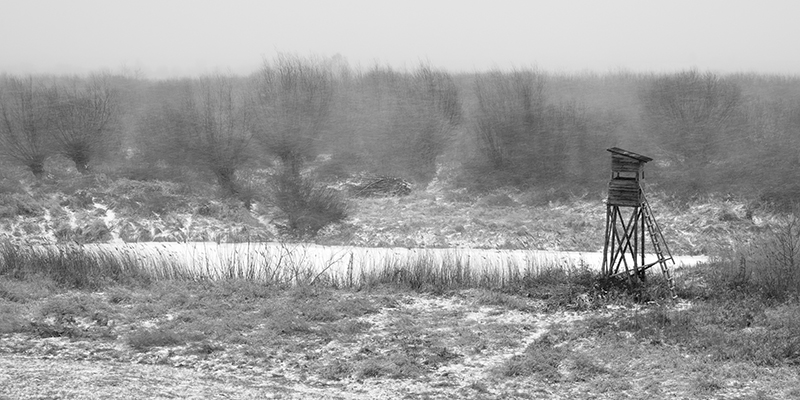Gulags, Government and Greater Love

by Revd Dr Thomas Brand
In 1945, Aleksandr Solzhenitsyn was sentenced to eight years in the Soviet Gulags because he had criticised Stalin and the government in private letters to a Ukrainian friend. This period of Russian history in which the appalling suffering of the gulags was commonplace, remains all but unknown in the West. Between the beginnings of the Soviet forced prison camps after the 1917 revolution and the death of Stalin in 1953 it is estimated that 18 million people passed through the gulags and 1.6 million died of exposure, starvation, brutality or execution.
Solzhenitsyn’s mighty work of literary investigation, The Gulag Archipelago is perhaps the most important indictment of a political regime ever to be written. Against the broad acceptance of Stalinism in Russia, two of Solzhenitsyn’s related conclusions are alarmingly relevant for us today. The first is the immense value of individual human freedom, and the second is the question of moral courage in the face of evil: when will we rise up and oppose this evil? How bad does it have to get before we stand up and object?
Much of the three-volume work details his own self-examination and the process of taking responsibility for his actions as a former Soviet captain who helped to buttress the unjust regime. It is also full of compassion for those absorbed by the system, often because of the simple need to survive and provide for family.
On 8th June 1978, 25 years after his release, but thirteen years before the fall of the Soviet Union, Solzhenitsyn gave the commencement address at Harvard University. He argued that ‘A decline in courage may be the most striking feature that an outside observer notices in the West today . . . Must one point out that from ancient times a decline in courage has been considered the first symptom of the end?’
Why am I writing about resistance to Soviet Russia? Because, although current trends in human sexuality and identity pose a very different kind of threat today, the LGBT ideology behind it is potentially just as dangerous. Like Soviet Communism, it ignores factual reality, devalues individual human life and opposes the natural family. In the face of this ideology we can so easily lose courage.
In Soviet Russia the natural family was one of the chief threats to the government because it epitomises the authority structures that can resist burgeoning state power. Today, the life-giving beauty and strength of the natural family – one man married to one woman and their children – is the stronghold of resistance against the aim of the LGBT movement, with its radical individualism, to sweep away concrete biological reality and to enshrine in its place individualised subjective feelings and delusion.
This is the impulse at work in our schools, where children are routinely taught and sometimes pressured to believe that it is perfectly normal and good to have two mummies or two daddies, while being brought up by two married, natural parents can be made to look unfashionable and dull. We see a similar thing in the workplace, where many companies encourage staff to wear rainbow lanyards or to include their preferred pronouns in correspondence.
People who oppose this LGBT agenda by stating that marriage is between one man and one woman, and that sex is biological, are already being detained by the police in the UK. But if the proposed conversion therapy law currently being discussed by our government makes it onto the statute book, writing a private letter to a friend to dissuade him from leaving his wife and children in order to transition or enter a homosexual relationship (or take up any of the myriad ‘identities’ now held up as undisputable internal realities) could be a criminal offence. Solzhenitsyn’s world doesn’t seem so far off when friends or family members face jail for sharing their concerns.
It forces us to come face to face with Solzhenitsyn’s troubling question, ‘how bad does this have to get before we stand up against this evil?’ Do we wait until our lives are touched by it personally? Do we wait until, like Solzhenitsyn, we face imprisonment? Sadly, like much of the post-war Russian population, many of us just hope for the best, and do nothing. Why? Are we afraid of the personal cost and potential embarrassment? Do we value our convenience above our commitment to truth? Do we worry what people will think of us if we object to our children being taught that a boy can become a girl if that is how he feels?
One reason why we feel this fear, and we all do to some extent, is because of isolation. This would get much worse under a conversion therapy ban, particularly if lobby groups take advantage or reporting mechanisms are introduced. Just like in Stalin’s Russia, such legislation is designed to isolate and deter dissent.
This is one reason why the Greater Love Declaration was written. It is a summary of what the Bible teaches about marriage, sex and identity. It succinctly states what orthodox Christianity has always believed and taught, and it helps break the fetters of isolation and unite orthodox Christians together so that we can take courage again.
At the heart of the Declaration is the Bible truth that real love is not selfish, it is other-centred. It does not put me first, it puts other people first. To love someone, we must not pander to their misbeliefs, we must sacrificially love them by speaking the truth. Speaking affirming lies about someone’s self-identity cannot be loving. Psalm 97:10 encourages us greatly here: ‘O you who love the LORD, hate evil!’
We can stand together against this evil because we love God and most wonderfully because God first loved us! Take courage, we can stand up together and speak out!

Revd Dr Thomas Brand
Ministry Director, Evangelical Fellowship of Congregational Churches
